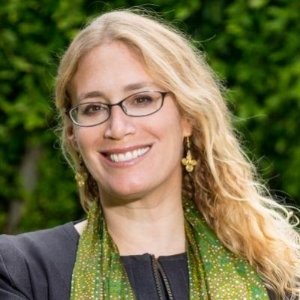Fran Seegull
Fran Seegull is the President of the U.S. Impact Investing Alliance, which advocates for an enabling public policy environment, catalyzes institutional capital for impact, and builds the impact investing movement globally. Seegull has a background in impact investing, having previously served as Chief Investment Officer at ImpactAssets. She holds a BS in Economics from Barnard College and an MBA from Harvard Business School, and serves on several investment committees and advisory boards.
What we learnt
What we learnt
Fran Seegull's career in impact investing was shaped by her experiences in philanthropy and the contemporary art world. In her current role, Fran works on impact Investing field building. She engages in public policy efforts to encourage capital flows, convenes institutional asset owners for collective action, and raises funds to support the development of robust impact investing infrastructure. Fran’s work aims to create a more equitable economic system by combining top-down approaches, such as engaging institutional asset owners and shaping public policy, with bottom-up approaches that revitalize historically marginalized communities.
Fran highlighted the top three issues that should be prioritized to help manifest an impact economy that is transparent and accountable to all stakeholders. If given unlimited resources, she would prioritize:
Shifting from Short-termism to Long-termism: She emphasized the need to move away from a focus on short-term financial returns and the primacy of shareholder value. Fran’s work encourages a long-term perspective in investment decisions to maximize value for all stakeholders over time.
Establishing Impact Transparency: She stressed the importance of advocating for regulations that acknowledge the financial relevance of impact factors. Through its work, the Alliance highlights the need for transparent and standardized disclosure of impact factors across corporations and asset managers. Harmonized reporting standards, including factors related to climate and human capital management, would better equip investors with clear and comparable data to understand a company's true value and exposure to risks.
Transitioning from Single Materiality to Double Materiality: Fran noted that seeding the future of fiduciary duty is critical for manifesting a more equitable economic system. In some jurisdictions, certain fiduciaries can only consider environmental, social, and governance (ESG) factors if they are financially material to a company. The Alliance advocates for expanding the concept of materiality to include both financial and stakeholder impacts. This approach, already being implemented in the European Union, would consider not only how ESG factors affect a company financially but also the entity’s impact on stakeholders including the environment.
Fran acknowledged the necessity of disruption and innovation to drive systemic change. She mentioned organizations and projects, such as Ujima Project, the Boston Impact Investing Initiative, Transform Finance, and Common Future, that are working to disrupt existing power structures and decision-making models to those communities most impacted by those decisions. Fran also noted the need for innovation within and outside of existing power structures and institutions to transform the current economic system.
Ultimately, Fran believes that by advancing impact transparency, Millennials and Gen Z will demand impact accountability and, over time, more economic, racial, gender and environmental equity. She sees her role as a Gen Xer to lay the groundwork for the next generation to challenge and reshape the existing system.
In summary, Fran's work focuses on advancing impact investing and creating a more equitable economic system through a combination of top-down and bottom-up approaches. She envisions a future where the regulations underpinning the capital markets and the economy more broadly encompass long-termism, double materiality, and impact transparency, ultimately leading to greater accountability and positive change.
Key quotes
“We believe that if we can manifest impact transparency, then we can move to impact accountability. And if we can move to impact accountability, we'll evolve to a system that, over time, will be more inclusive and equitable.”
“Millennials and Gen Z's will demand impact accountability. Our job as Gen Xers is to make it possible for them.”
“Currently, you may take ESG factors and impact factors into account in making investment decisions only they are financially material to the company. This still puts shareholder value as the highest and most important priority. We would like to move from this focus on single materiality to double materiality.”
“I think the traditional approach to corporate strategic planning doesn’t work any longer. We use a much more organic approach to planning—one that is inclusive of all employees, and is flexible and evolving. This, we believe, is the best operating mode given the increasingly complex systems in which we all operate.”
